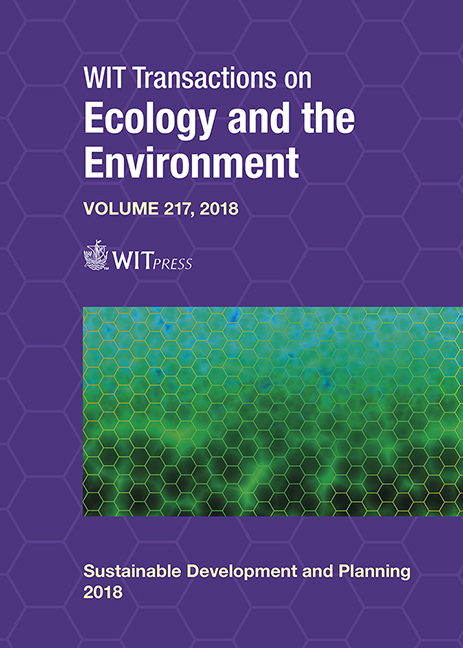REVOLUTIONALIZING AGRICULTURE EXTENSION DELIVERY THROUGH MOBILE TELEPHONY: THE EXPERIENCE OF VILLAGE ENTERPRISE AGENT MODEL IN GREATER MASAKA AREA, UGANDA
Price
Free (open access)
Transaction
Volume
217
Pages
12
Page Range
963 - 974
Published
2018
Size
352 kb
Paper DOI
10.2495/SDP180811
Copyright
WIT Press
Author(s)
NICHOLAS MUGABI, ANDREW ELLIAS STATE, JULIUS OMONA, BIRGITTA JANSSON
Abstract
Agriculture continues to be the thrust of Uganda’s economy, directly employing majority of the population. However, there is deficiency in extension service delivery with few trained extension workers to support smallholder farmers. As a result, there have been strides to revolutionize traditional agriculture extension delivery through Village Enterprise Agent Model using mobile telephony digital extension platform. A cross sectional study design was adopted using ethnographic interviews and survey questionnaire with 70 VEAs. The diffusion of innovation theory and technology acceptance model are applied to examine the VEAs’ experience in using mobile telephony as a tool to deliver agriculture extension services. Explicitly, the study investigated the capacity of VEAs to deliver extension services, how they do it, the kind of information delivered and the challenges to this model. Study findings revealed that social networks of farmer groups are key diffusion channels through which VEAs reach smallholder farmers. Adopters’ characteristics such as VEAs’ education background, community leadership skills and prior experience in using mobile telephony has a strong bearing on the ease of disseminating digital messages to farmers. In addition, the Kulima mobile telephony digital platform has supported real time dissemination of agricultural information. This is integrated with pragmatic demonstration gardens, farmer exchange visits, home visits to enhance farmers’ peer learning. The sustainability of VEA model, with no clear incentive system, amidst complicated agriculture terminologies used in digital messages are some of the challenges to the model. Thus, future extension delivery using community agents and information communication technology should be cognizant of the social cultural dynamics, social nodes and ties of farmers and translate mobile digital messages into indigenous languages.
Keywords
agriculture extension, village enterprise agents, mobile telephony, digital messages, smallholder farmers





